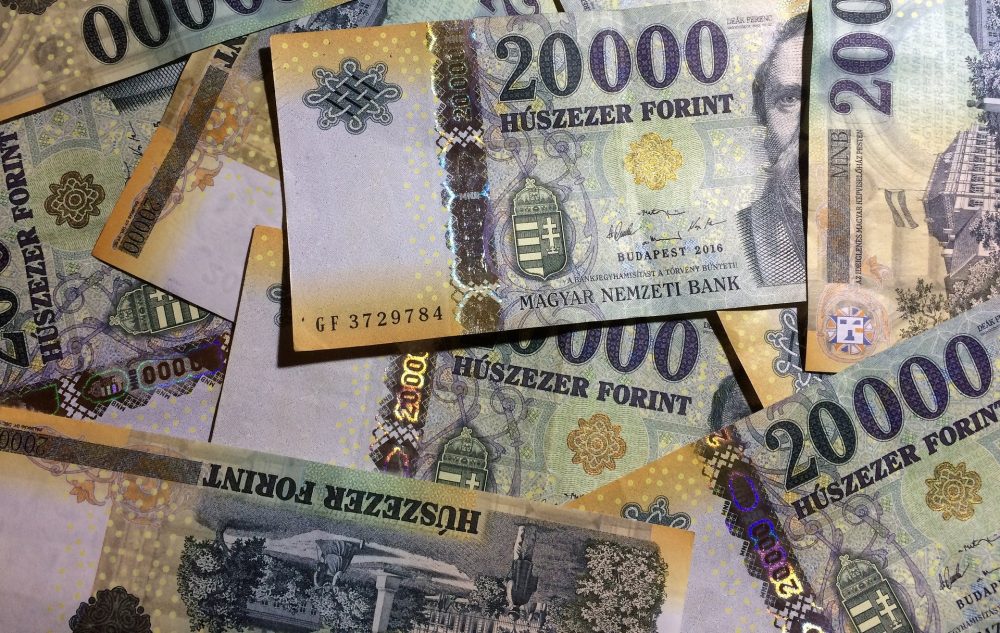
Judit Varga expects the European Commission to be objective and constructive. Continue reading

After Standard & Poor’s (S&P) credit downgrade on Friday, the Hungarian government has reacted by outlining a positive vision for the future. The Minister for Economic Development said Hungary could soon be upgraded, while the Finance Minister said the Hungarian economy could grow above 4 percent next year. However, these are optimistic assessments and will come to fruition only if 2023 will not produce further major unexpected negative factors such as the global pandemic and the war in Ukraine were.
The news that Standard & Poor’s changed Hungary’s ‘BBB’ rating to ‘BBB-‘ came after the stock market closed on Friday. The decision was mainly motivated by inflation, the unpredictable international economic environment, and the European Commission’s delay of EU funds.
The rating agency’s experts believe that Hungary can successfully meet the milestones of its agreement with the Commission and receive the funds it is due this year. They highlight the government’s commitment to deficit reduction, adding that this could be a challenge, given energy prices. On growth, they see Hungary avoiding recession this year on an annual basis, with the rating agency expecting GDP growth of 0.3% in 2023, and above 3% in 2024.

Judit Varga expects the European Commission to be objective and constructive. Continue reading
A week earlier, London-based Fitch affirmed Hungary’s sovereign debt rating, but downgraded its outlook as it saw uncertainty over EU funding remaining high.
S&P’s downgrading means that Hungary is just within the category of investment grade, but only by a narrow margin.
S&P rates borrowers on a scale from AAA to D, and the lowest investment grade category is BBB. If Hungary were to be rated even lower, it would no longer be investment grade, but in the non-investment grade, the agency says.
Reacting to the rating, Economic Development Minister Márton Nagy struck an optimistic tone, saying that the government’s economic measures will pay off and that in the coming months we will see inflation fall and the economy avoid recession. According to him, Hungary could soon be upgraded, adding that the new Standard&Poor’s rating would not have a significant impact on the country’s financing capacity. At the same time, he stressed that efforts must be made to ensure that the upgrades take place.

MNB will use all means to restore and maintain price stability, György Matolcsy stressed.Continue reading
Finance Minister Mihály Varga pointed out that although the dangerous international environment and the effects of sanctions are reflected in the assessment of credit rating agencies, Hungary can expect growth. He said that thanks to stability-enhancing measures, the Hungarian economy could avoid a downturn this year and return to growth above 4 percent next year.
The minister emphasized that the budget deficit will be improved to 3.9 percent this year and the debt-to-GDP ratio to below 70 percent. He added that
the government continued to repay public debt early this year: after a successful bond issue, Hungary repaid HUF 370 billion (EUR 945 million) of debt in January.
One of the key reasons for the downgrade is the high level of Hungarian public debt. Currently, Hungary’s debt-to-GDP ratio stands at 72 percent. By comparison, the Maastricht criteria for the European Union require that the ratio of gross government debt to GDP must not exceed 60%. It is important to add, however, that the coronavirus epidemic has exempted EU member states from this requirement, as a number of tools and funds were needed to manage the pandemic and its consequences.
Looking at the region as a whole, however, Hungary is in an unenviable position with a possible debt-to-GDP ratio of around 73% in 2022, compared to 60.51% forecast for 2022 in neighboring Slovakia and 41.47% in the Czech Republic.
To understand the situation in Hungary, we need to go back in time to 2002, when the first government of Viktor Orbán came to an end and the Socialists took over. Then the Orbán government handed the country over to former Socialist Prime Minister Ferenc Gyurcsány, now leading the Democratic Coalition party, with a 54.6% public debt. Up until 2010, when Fidesz came back into power, the Socialists added a further 25 percent to the national debt, putting Hungary in a dangerous position.
Featured photo via Pixabay
Array
(
[1536x1536] => Array
(
[width] => 1536
[height] => 1536
[crop] =>
)
[2048x2048] => Array
(
[width] => 2048
[height] => 2048
[crop] =>
)
)